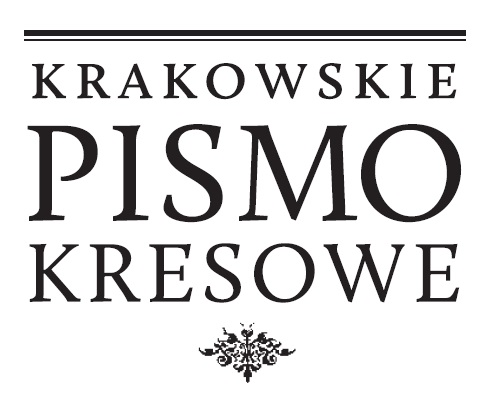Krakowskie Pismo Kresowe
Cracovian Kresy’s Journal
Publishing House: KSIĘGARNIA AKADEMICKA Sp. z o.o.
Subject(s): History, Cultural history, Local History / Microhistory, Oral history, Political history, Social history, Recent History (1900 till today), 19th Century
Frequency: 1 issues
Print ISSN: 2081-9463
Online-ISSN: 2392-120X
Status: Active
- 2009
- 2010
- 2011
- 2012
- 2013
- 2014
- 2015
- 2016
- 2017
- 2018
- 2019
- 2020
- 2021
- 2022
- 2023
- Issue No. 01
- Issue No. 02
- Issue No. 03
- Issue No. 04
- Issue No. 05
- Issue No. 06
- Issue No. 07
- Issue No. 08
- Issue No. 09
- Issue No. 10
- Issue No. 11
- Issue No. 12
- Issue No. 13
- Issue No. 14
- Issue No. 15
Articles list
{{ article.TitleOriginalLanguage }}
{{ article.TitleOriginalLanguage }}
({{ article.TitleEnglish }})
- Publication: {{ article.Publisher }} ({{ article.Issue }})
- Author(s): {{ article.Authors }}
- Contributor(s): {{ article.Contributors }}
- Language: {{ article.Language }}
- Subject(s): {{ article.Subjects }}
- Issue: {{ article.Issue }}
- Page Range: {{ article.PageRange }}
- No. of Pages: {{ article.NumberOfPages }}
- Keywords: {{ article.Keywords }}
- Summary/Abstract: {{ article.SummaryAbstract }}
- Price: {{ common.currency(article.Price) }}
Short Description
The aim of the periodical "Krakowskie Pismo Kresowe" has been a modern and interdisciplinary insight to the history of Poles in the Eastern parts of former Republic, which in Polish literature and historiography since the end of XVIII have been referred to as “Kresy”. In the last fifty years this topic has raised much controversy due to the difficult history of political and national transformations in the 20th century, often paid for by tragic life stories of people of various nationalities and religions. The emotions connected with these events and their sorrowful remembrance inherited through generations of citizens of each country often decided on the character of the subject literature. On the other hand, due to the reigning communist regime, this subject was often a forbidden topic and occasionally appearing papers on this subject were written according to the requirements of the obligatory at the time propagandistic and political thought. Due to the above mentioned facts, our publication, distancing itself from any hostile to scientific research ideologies and demands of the political character, would like to provide a scientific, distanced outlook on the “Kresy” –the “small fatherland” of many Poles, an element of the Polish culture, and finally a place where numerous nations have met and left their marks, contributing to the cultural uniqueness of many places in South-Eastern Europe.

